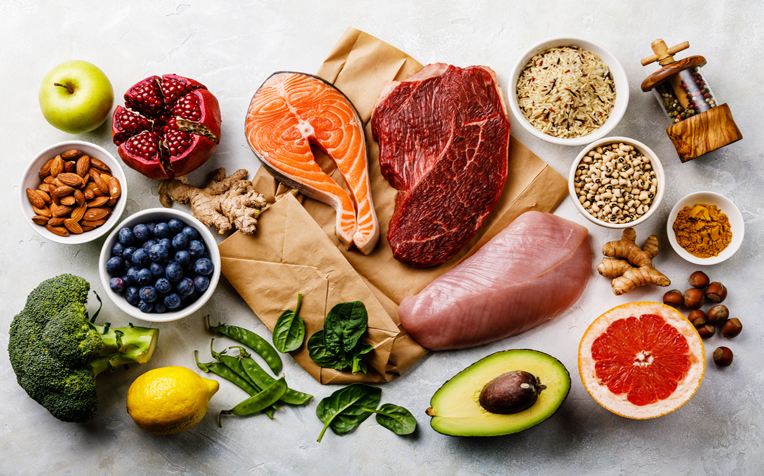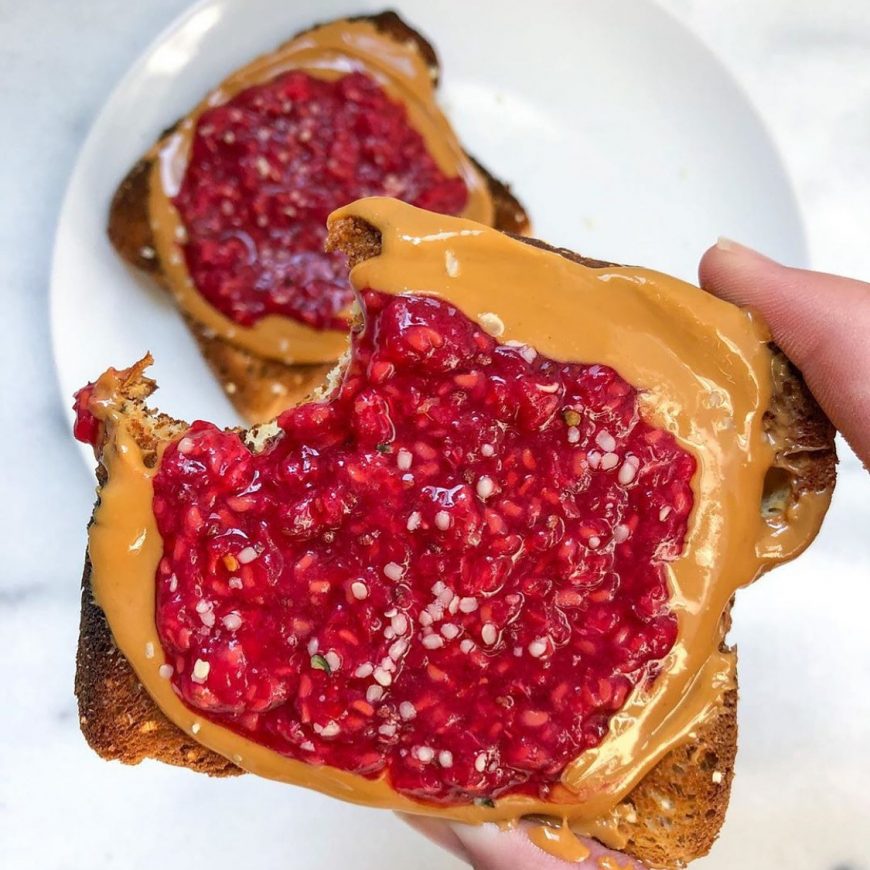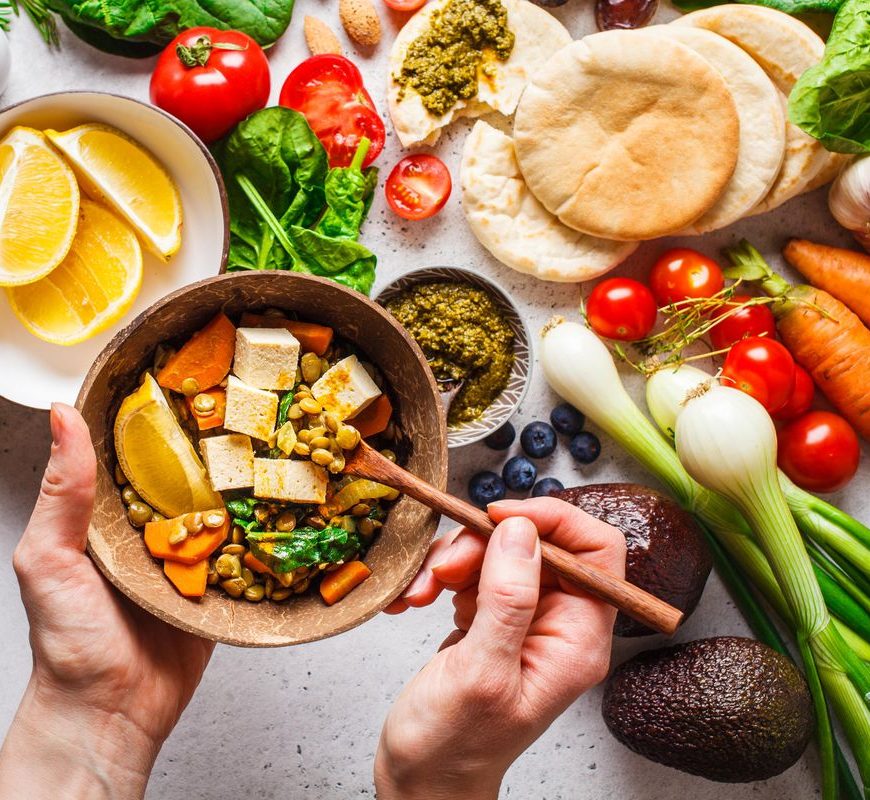Anaemia is one condition that can affect any age or stage in life. It is defined as deficiency of red blood cells (haemoglobin) in the blood. Haemoglobin carries oxygen around the body. Oxygen is required in the energy equation to create energy. Anaemia is caused by a deficiency in iron, vitamin B12 or folate (vitamin B9). Iron-deficiency anaemia is the most common type, because iron deficiency is the most common vitamin or mineral deficiency in the world. Despite the fact that iron is the second most abundant mineral in the earth.
Signs and symptoms include tiredness, fatigue, low energy, pallor, breathlessness, feeling faint, hair loss, bright red tongue, and spoon-shaped nails. Anaemia may be caused by inadequate dietary consumption of one of the above nutrients, malabsorption due to leaky gut or Coeliac disease, and/or heavy menstruation.
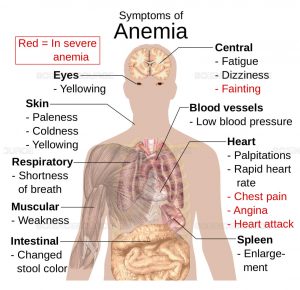
Iron
A well-known deficiency in vegans and vegetarians. In order from highest to lowest, food sources include liver, soybeans, tofu, molasses, beef, lentils, dried apricots, lamb, eggs, tempeh, kidney beans, spinach, silverbeet, chicken, and kale. Keep in mind that iron is more easily absorbed from animal foods (haem iron has a 7-35% absorption rate) compared to plant foods (non-haem iron has a 2-20% absorption rate). See how easy it is to be iron deficient!
However, vitamin C further enhances iron absorption. Eating/taking vitamin C with non-haem iron iron-rich foods is your best bet to absorb as much iron as possible if you are vegan/vegetarian. In order from highest to lowest, food sources of vitamin C include camu camu (powder or supplement), acerola cherry (powder or supplement), guava, capsicum, blackcurrants, kale, kiwifruit, broccoli, strawberries, orange, lemon, rockmelon, grapefruit, blackberries, and tomato.
There is a greater risk of anaemia if you are female and of child-bearing age, have heavy periods, are vegan/vegetarian, malabsorption, pregnant, fussy eaters (especially children), donate blood, or have lost a large amount of blood due to an accident. Supplementation may be inevitable for some individuals. Iron supplements can be prescribed by a healthcare practitioner after a blood test confirming sub-optimal levels.
Women lose up to 50mg of iron per month through menstruation! While men and non-menstruating women only lose around 1mg per day through sweating and shedding of skin cells. Iron is mostly stored in the liver. The average male stores around 1,000mg of iron which is enough for about three years. Comparatively, females store around 1,000mg of iron which is enough for about six months. If you become deficient you may need to take an iron supplement or increase iron-rich foods for a few months to build your stores back up again.
Vitamin B12
Is the only nutrient solely found in animal foods e.g. meat, seafood, eggs, and dairy. Vitamin B12 is the most common deficiency in long-term plant-based diets, therefore, the most important nutrient for vegans. Vegetarians may be able to get enough, but vegans cannot.
Trace amounts of B12 are present in mushrooms, yeast (especially nutritional yeast), seaweed, algae, and fermented foods. However, these are not sufficient as primary sources. It is still possible to be deficient even if you do include animal foods in your diet.
There is a theory that B12 used to be present in plant foods in the form of tiny little insects on unwashed produce. However, we cannot rely on these insects as a source of anymore due to pesticides.
B12 is required for the synthesis of DNA and red blood cells. It is vital for the nervous system and it plays a role in heart health. Deficiency can result in anaemia due to its involvement in red blood cell formation.
Vitamin B12 is the only B vitamin that is stored in the body. Our B12 stores will last us for the most of 3-5 years until they are exhausted. If vegans stick to their lifestyle for that long, and even people who eat limited animal products in their diet, symptoms may only become apparent after this length of time. While enthusiasts may feel like they have a new lease on life in the short-term, seriously consider supplementation to prevent chronic deficiency in the long-term.
Folate (Vitamin B9)
Rich in green vegetables, legumes, eggs, beetroot, citrus fruits, liver, wheat germ, and avocado. Folate supplementation is strongly advised for pre and during pregnancy to prevent neural tube defects. For the average person supplementation isn’t necessary, and it is included in a B complex vitamin.
Liver is one of the best sources of iron, vitamin B12 and folate, all three in one! Make liver pate or disguise it in mince dishes.
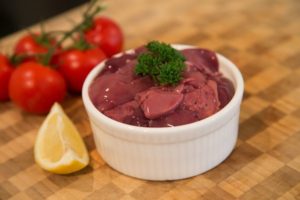
Through Ages and Stages
Babies/Children
One study conducted in Auckland showed 14% of infants aged 6-23 months were iron deficient. Infants are vulnerable to iron deficiency if their mother is deficient (there is a higher risk if she is vegan/vegetarian), because they solely rely on iron from their mother’s stores during pregnancy and breastfeeding. Hence why it is important for pregnant/breastfeeding mothers to ensure they have sufficient iron. Breastfeeding is important for immunity in infants, however, delayed weaning (and the late introduction of solids) has been shown to be a predictor of anaemia in 1-2-year olds. Solid foods should be introduced by 6 months old to boost iron intake.
Teenagers
Adolescent girls have a greater risk of anaemia due to menstrual loss and the adoption of a vegetarian diet by a growing number of teenagers. Red meat, which is omitted on a vegetarian diet, is a major source of the highly absorbable haem iron. One study carried out in eight Auckland high schools found that iron deficiency and anaemia are ten times more common in girls (18.3% and 11.5% respectively) than boys (1.5% and 1.4%). This is because boys are likely to eat more red meat and they don’t lose blood every month!
Adults
Anaemia most often affects women of child-bearing age. The two key contributors to this are a low consumption of red meat and heavy periods. Vegan and vegetarian diets are increasing in popularity, and even omnivores are becoming more aware of sustainability and the environment. The notion of ‘Meatless Monday’ and social media influencers promoting plant-based eating is heavily targeted at women, who are already at a higher risk of developing anaemia than men. A women’s nutrition and lifestyle choices determine her risk of iron deficiency anaemia. If a woman suffers from heavy menstruation, she should seek the assistance of a professional to prevent excessive blood loss which would further worsen anaemia. Even though women pose a higher risk of anaemia, it is still common in men. It is more prevalent in vegan/vegetarian males. One study involving nine countries showed that NZ males tested lowest in ferritin (stored iron) out of all of the countries in the study. This could be due to poor diet, malabsorption, or blood donation.
Pregnancy
During pregnancy, more iron is required to supply the growing foetus and placenta, plus increase the mother’s quantity of blood. The iron that the foetus absorbs in the placenta, must be enough to last until the infant is introduced to solids. If the mother is deficient during pregnancy, this affects the infant’s iron levels post-birth for the first six months until solids are introduced. The recommended daily intake (RDI) of iron for pregnant women is 27mg/day. Comparatively, the RDI is 18mg/day for menstruating women and 8mg/day for non-menstruating women. To achieve optimal levels, supplementation is generally recommended during pregnancy. Elevit is a supplement commonly recommended during pregnancy. It contains 60mg of iron per daily serve.
Elderly
Often suffer from anaemia due to eating a diet lacking variety. Especially if they are living on their own. Malnourishment is a greater risk in elderly due to low stomach acid. Stomach acid is required for the absorption of iron. Stomach acid and the ability to absorb iron both decrease with age. False teeth or loss of teeth may also affect ability to chew red meat, which is a rich source of haem iron. There may also be a lack of desire or appetite for meals. Also lack of money to buy iron-rich foods. One study found that 10.2% of women and 11% of men over the age of 65 were anaemic. Elderly must continue to make wise nutrition and lifestyle choices as they age to support their iron and nutrient intakes.
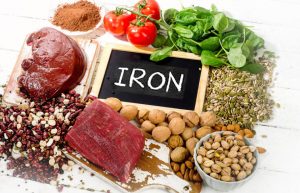
Best to Test
Ladies, please do not be one of those people who goes straight to the pharmacy or health store to buy iron tablets at the first sign of fatigue, without having had a blood test to confirm your iron levels. It can be dangerous to take iron tablets if you do not need to. Even more dangerous for men who do not require as much iron as menstruating women. High levels of iron in the body are inflammatory, contribute to oxidation, and increase your risk of heart disease and cancer.
Iron is so important that our body has no means to excrete it, except during menstrual cycles but there are only so many of those we can have (and males can’t at all!).
Haemochromatosis is iron overload. It is a genetic condition (HFE gene mutation) of excess iron absorption and over-storage of iron. The problems is that the symptoms are similar to anaemia e.g. tiredness, fatigue, and generally feeling unwell. It would be life-threatening to take extra iron in this case. This highlights the importance of seeking a practitioner and testing. These individuals need to donate to get rid of their excess red blood cells. At least this is better than leeching! Haemochromatosis is more common than you think. About 1 in 200 people have the condition. It’s 2-3 times more common in men. Menstrual losses in women decrease their risk.
If you suspect anaemia, it must be confirmed by a blood test before you take any supplements or medication.
Tiredness is not only caused by anaemia or iron deficiency. It is just one of the many causes. The best place to start is to seek professional advice and get a blood test including complete blood count, iron studies, ferritin, vitamin B12, and folate.
Consult with me for personalised recommendations. Some herbs are anti-anaemic and nutritive, which may help to restore adequate red blood cell levels. A Naturopath can recommend foods and prescribe Herbal Medicine individualised to you.
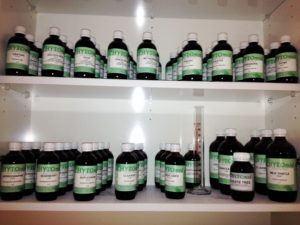
Check out my blogs ~ Considerations for Anaemia and Fatigue… Beyond Iron Deficiency.

Your Nutrition Mentor,


